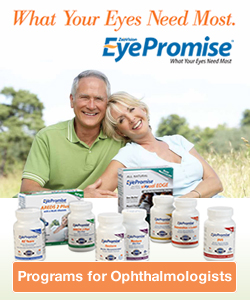

|
March 2010, Issue 39
Cataract Surgery for Patients with Advanced Age-Related Macular Degeneration
Saad Shaikh, MD
Affiliate Assistant Professor
Assistant Clinical Professor, Ophthalmology
Several studies have demonstrated benefit in visual acuity after cataract surgery in patients with late-stage age-related macular degeneration.2, 3 Even greater benefit is observed in self-reported visual function and the performance of daily activities.4 The improvement in contrast sensitivity after removal of cataract maximizes the benefit of low vision devices and independence for patients. Fortunately, such eyes do not typically demonstrate progression of macular disease after cataract extraction.4
When considering cataract surgery in patients with advanced age-related macular degeneration, ancillary testing with fluorescein angiography and/or optical coherence tomography is often helpful to assess the status of exudative disease. Small incision cataract surgery via phacoemulsification is recommended in order to minimize postoperative retinal inflammation. A monofocal acrylic intraocular is recommended in order to maximize visual potential for the low vision patient, and for the retinal surgeon should future surgery be required. Suturing the cataract wound may be considered in order to minimize the risk of wound dehiscence and endophthalmitis from postoperative intravitreal injections, if needed. For those retinal specialists who perform the cataract extraction ourselves, anti-vascular endothelial growth factor injections can be administered at the time of cataract surgery should exudative disease be present, or in the perioperative period if the patients are undergoing surgery by a cataract surgeon.
In the future, as intraocular telescopes become integrated into clinical practice, the role of traditional cataract surgery in patients with advanced age-related macular degeneration may change. Until then, cataract surgery does have a place in the management of patients with advanced macular degeneration, and an argument may be made for earlier intervention in order to maximize both extent and duration of functional visual acuity. So the next time you can't see that retina too well, consider making a referral back to the cataract surgeon. It not only will help your view, but it might actually make a significant impact on your patient's vision and quality of life. REFERENCES
|
Ingrid U. Scott, MD, MPH, Editor
Professor of Ophthalmology and
|

|



